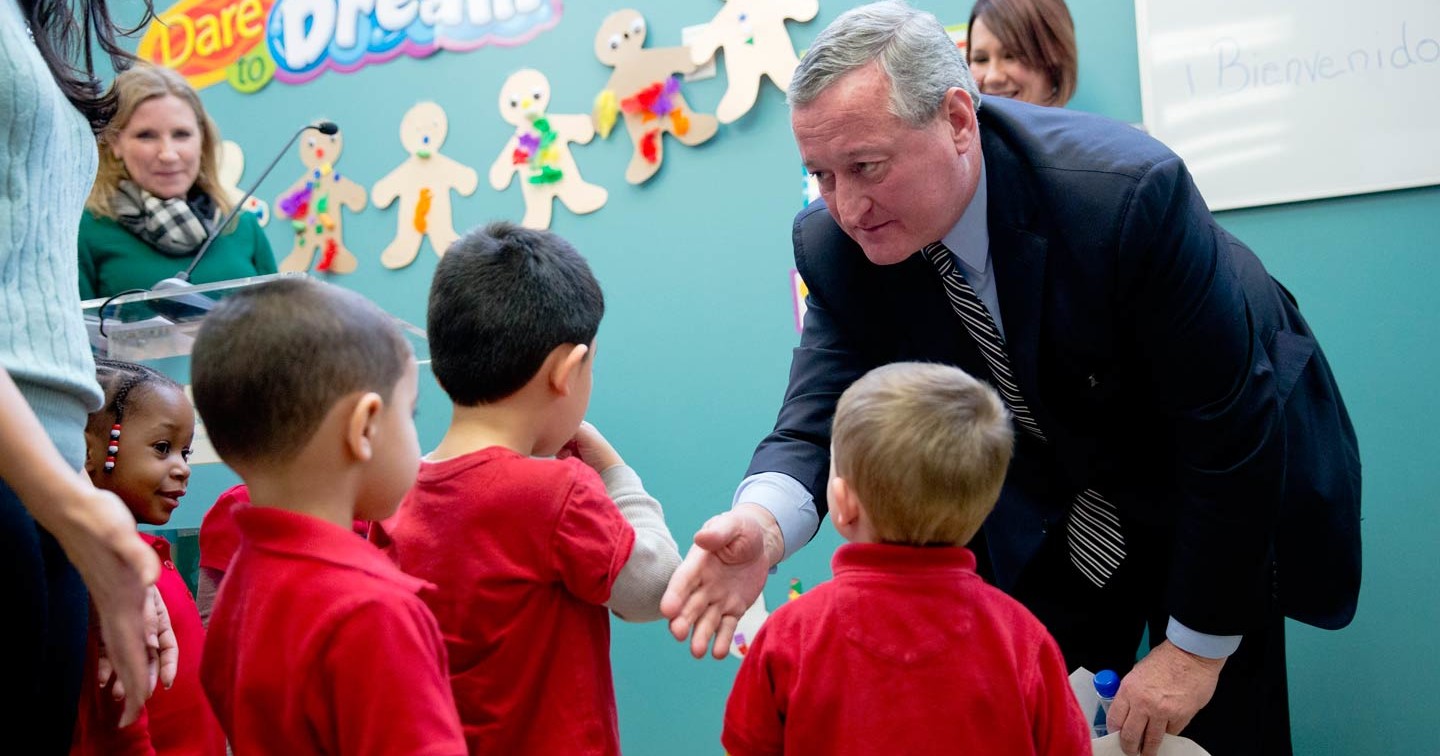![]()
Philadelphia mayor Jim Kenney doesn’t want to begin his tenure by tinkering around the edges of city policy. He wants to try something big. Last year he won the Democratic primary by the largest margin of any Philly mayoral contender since the 1970s. Now, less than five months into his administration, he wants to cement his term with a huge policy win: taxing sugary beverages to fund universal pre-kindergarten programs for thousands of youngsters, among other initiatives.
Kenney’s proposal is one of the most ambitious of any soda surcharge proposed over the years: three cents an ounce, levied on the distributors, which would be earmarked towards specific and very popular programs. Diet sodas would not be covered, but sports and juice drinks would be. The mayor’s office estimates that the tax would bring in over $400 million over five years, with $256 million going to pre-K, $56 million going to support parks and rec centers, $39 million going to community schools, and the rest going to myriad other programs.
Kenney says that he’s going after the soda industry because Philadelphia simply doesn’t have any other revenue options left. After years of trying plug holes in the city and school-district budget, especially after the sweeping education cuts enacted by former Republican governor Tom Corbett, taxes have been raised on almost everything else. And, he argues, it’s about time the soda industry gave back to the communities that have made them rich.
“The profits made by that industry are massive and they are massive based on their reliance on advertising in poor and minority communities,” says Mayor Kenney. “They’ve made their money off the backs of poor people, but this money will stay in poor neighborhoods. They asked Willie Sutton why he robbed banks and he said that’s where the money is, well, we are taxing sugar sweetened beverages because that’s where the money and because they can afford it.”
In this famously fractious and cash-strapped city, ambitions this grand are rarely attempted, let alone accomplished. And a soda tax is a hard sell even in the most liberal locales. Some 30 cities and states have floated soda-tax proposals, and all have failed with the exception of Berkeley, which successfully levied a one-cent-per-ounce tax that passed by voter referendum in 2014. (In the 1990s, a few states succeeded in passing similar taxes, but on a much smaller scale: Arkansas charges two cents per every 12 ounces sold and the money is earmarked for Medicaid.) Such proposals often flame out because their proponents have to wage a two-front war—against the soda industry, which is fighting desperately to avoid becoming the next tobacco industry, and against progressive forces who fear the tax will be too regressive.
Still, Kenney’s proposal stands a real chance. By earmarking the revenues to programs that are at the top of the progressive agenda, Kenney has provided a strong counterargument to those concerned by the regressive nature of the tax: The money will go right back into those very neighborhoods that are hit hardest. And by selling the tax purely as a funding mechanism, and avoiding the arguments about personal health, he has removed the whiff of eat-your-vegetables condescension that so often accompanies these proposals.

